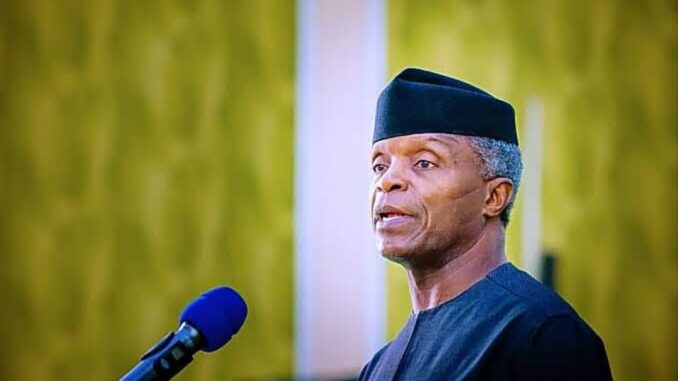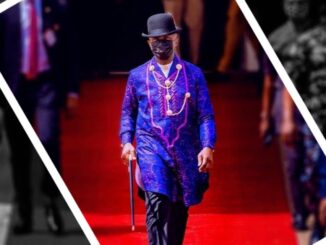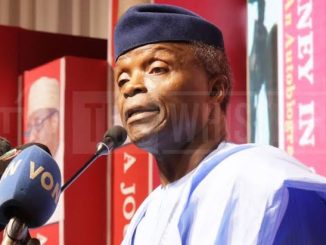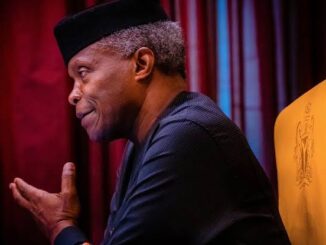
• Tasks leaders to embrace citizen-focused governance, says true greatness lies in service to others
By Marvellous Nyang
May 10, 2025
Former Vice President of Nigeria, Prof. Yemi Osinbajo, has declared that the true test of national greatness lies not in the size of a country’s economy, its military strength, or infrastructural projects, but in the welfare and quality of life of its people, particularly the poor and vulnerable.
Osinbajo stated this while delivering the keynote address at the Rotary International District 9141 Conference in Port Harcourt, Rivers State, on Friday, May 10, 2025.
His speech, titled “The Magic of Connection: The Imperative and Privilege of Service”, called on leaders across all sectors to embrace service as the primary responsibility of governance and leadership.
“The measure of a nation’s greatness is not in the size of its army or its infrastructure. It is in how it treats the poor, the weak, the vulnerable, how it provides education, healthcare, and a safety net for all,” Osinbajo declared.
Recalling his experience in drafting the All Progressives Congress (APC) manifesto in 2014, Osinbajo said the focus was always on policies that directly impact the lives of ordinary Nigerians.
He referenced programmes such as the National Home-Grown School Feeding Programme and TraderMoni, designed to support small-scale traders and improve school enrollment and nutrition.
ALSO READ: How to persuade people to change their behaviour
He also cited the historic example of Chief Obafemi Awolowo’s introduction of free education in Western Nigeria despite financial constraints, pointing out that it laid a solid foundation for human capital development in the region.
“True political leadership is about making real sacrifices to serve others. It is not about accumulating power or wealth, but about how many lives are changed for good,” he added.
The former vice president lamented the disconnect between Africa’s rich talent pool and the continent’s underwhelming development indices.
He said the problem is not the absence of human talent or creativity, but the chronic underdevelopment of the people through corruption, poor governance, and lack of meaningful investment in education and healthcare.
“Our challenge in Africa is not a lack of talented people, it is the systemic waste of our most valuable resource: our people,” Osinbajo stressed.
He further charged leaders and the elite class to ask themselves deep and uncomfortable questions about their roles in building society.
“When you look back on your life, what will matter most is not how much wealth you acquired or how many positions you held. It will be: how many people’s lives were better because you lived,” he said.
Speaking on national priorities, Osinbajo criticised budgetary patterns that marginalise the basic needs of citizens. He said the challenge with Nigeria’s budget is not just how much is allocated, but how it is distributed and what values inform that distribution.
“A budget is a statement of values. If the biggest allocations go to overheads or non-essential projects while millions go hungry or lack access to healthcare, then it’s clear where our real priorities lie,” he argued.
Osinbajo praised the Rotary Club for embodying the ethic of service that Nigeria’s public institutions should emulate. He described Rotarians as proof that ordinary citizens can commit themselves to improving lives without seeking personal reward.
“You show us that serving others is not a duty, it is a privilege. And a society where people understand that principle will always find its way to greatness,” he said.
In line with his previous advocacy, Osinbajo reiterated that democracy is sustained not just by elections or free speech, but by social justice, by a system that ensures people are not left behind.
This message echoes his earlier remarks at other fora, including the National Social Cohesion Dialogue where he insisted that “social justice is the most powerful force for ensuring peace and unity in diverse nations.”




